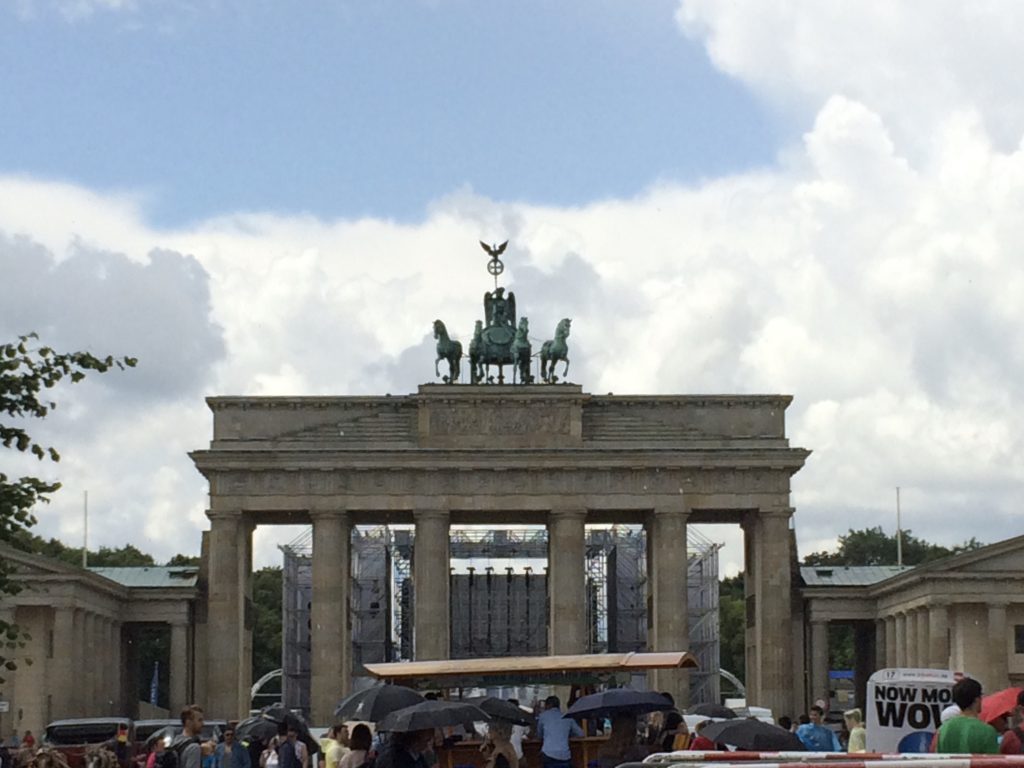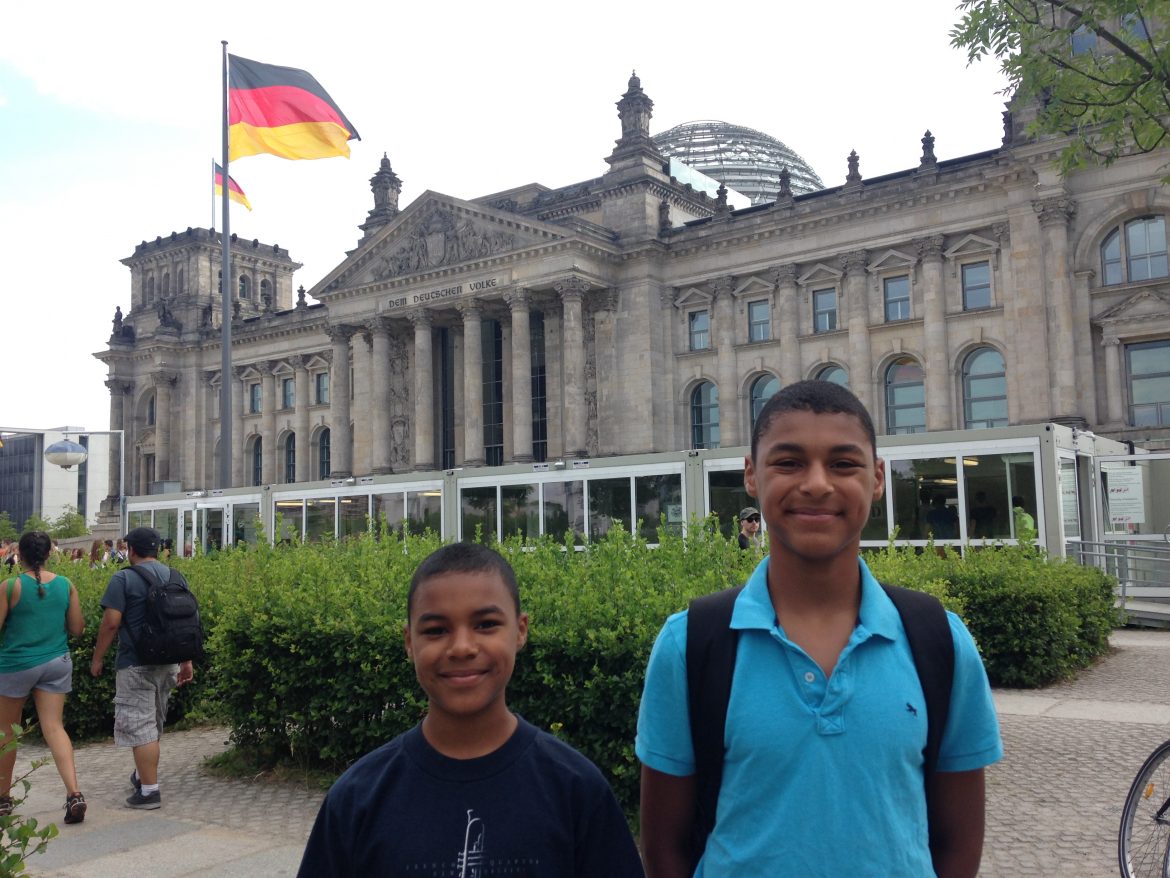ODYSSEY Media Group Sports Editor Alexander Robinson and Variety Staffer Andrew Robinson pose for a photo in front of the Reichstag, Germany’s parliament, in Berlin on July 7, 2014. Photo by Ramona Robinson
ODYSSEY Media Group Sports Editor Alexander Robinson reflects on a cathartic experience he had in Berlin, Germany, as a sixth-grader.
I was born and raised in Athens, Georgia. I spent nearly my entire childhood in my hometown. In Jan. 2014, however, my family and I temporarily moved to Berlin, Germany.
I was 12 years old. My father, a professor of chemistry at the University of Georgia, was awarded a fellowship at the Berlin Institute of Technology. For seven months, we lived in an apartment complex at 18 Wiesbadener Straße in the Wilmersdorf neighborhood.
From the outset, my mother made sure that our stay would be meaningful. My brother nor I had lived anywhere outside of Athens-Clarke County, so she decided to make the most of our shared time abroad.
When we weren’t attending the Nelson Mandela International School, my brother and I were visiting museums, exploring Berlin using the U-Bahn (train), or slowly learning German.
In February, she decided to take our cultural education a step further. On a cold, bleak Sunday morning, my family and I left our apartment at the break of dawn. I don’t remember if I knew where we were going at the time, but after a while, we were on the outskirts of the city.
We found ourselves at Berlin-Grunewald, an old train station. We made our way to Platform 17, where we learned of the tragic history behind the terminal.
During the Second World War, the majority of Berlin’s Jews were deported from Berlin-Grunewald. By 1945, 50,000 Jews had been sent from the station to concentration camps further east, with 17,000 sent directly to Auschwitz-Birkenau.
My mother thought that it was of the utmost importance that my brother and I understand the history of the city, and she trusted us to handle that weight appropriately.
I don’t remember how long we stayed at the memorial, but I do remember reading the plaques that had been installed at the site. Inscribed on each was a date alongside the number of deported victims and the name of their destination.
The mood was inexplicably somber.
After a long period of reflection, my parents bought a white rose for both my brother and I. They told us to place it along the tracks. I remember holding back tears while doing so.
I consider that trip to Berlin-Grunewald the most impactful event of my childhood.
On that dreary winter morning, something profound changed. It cemented within me a deep resolve. Thanks to that experience, I always try to do what is right to the best of my ability and judgment.
I have challenged myself to speak up for others when necessary. From now until I am no longer able, I hope to continue to stand up for what I believe in and fight the good fight, even if it’s not my own.
I am neither German nor Jewish — I have no direct link to the history at Berlin-Grunewald.

The Brandenburg Gate stands in the center of Berlin on July 12, 2014. President Reagan made his famous “Berlin Wall Speech” at the site on June 12, 1987. Photo by Ramona Robinson
Nonetheless, I realized a universal truth there: we should strive to follow our moral compass because collectively, we can save the world from greater evils. This goes beyond simple awareness; we should actively improve the condition of those less fortunate.
Returning to Athens in July of that year was a bit of a struggle. My family began to pick up where we left off, but all of us had changed. We all were more conscious of what was happening around us and of the things we said.
I, in particular, began to pay much more attention to the news and discovered a burgeoning passion for politics. All the while, I would remind myself every so often of the feelings I experienced on Platform 17.
That day trip left a huge impact on my worldview and personal philosophy. Visiting Berlin-Grunewald was not an enjoyable experience, but it was still a positive one. I want to keep this memory with me as I move into life’s next chapter.
I hope my cathartic experience will continue to guide me. It must.
